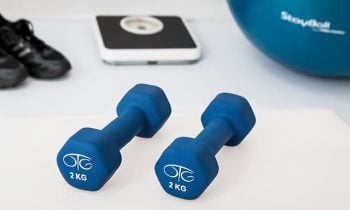Exercise can be too much of a good thing. Overtraining occurs when athletes who are training for a specific event push themselves past the body’s ability to recover. They exercise longer and harder in the hope of increasing their performance at a faster rate.
But unless they take the proper time to recover, these high intensity regimens can backfire leading to decreased performance and frequent injuries. The time between workouts is when the body renews, repairs and strengthens itself. Whether you are working out casually at the gym or training for a big game it is important to know the signs of working out too hard.
It might seem like the results of overtraining would simply be that you start to feel run down or that your workout performance starts to decrease. It might even be logical to think that overtraining will lead to your losing muscle mass and finding it harder to complete your workouts. And all of this is true, overtraining can leave you physically and mentally exhausted.
But there are other signs of overtraining that don’t seem like they would be related to your workouts. These signs are important to know and if they are ignored, it could start sending your body in an unhealthy direction.
Believe it or not, one sigh of overtraining is an inability to sleep. What might seem like simple restlessness can actually be a sign of something more. If you are finding that you consistently have a hard time getting to sleep or staying asleep you may be overtraining. And even though these restless nights can come anytime, if they tend to come more frequently on your workout days then that is another red flag that you are overtraining.
Another sign of overtraining is having a decreased immune system. You may find that you are starting to feel lethargic, run down, and get sick more often. In addition once you get sick you might find that is harder to get over your sickness. You may even find that the same supplements and home remedies that used to get you back on track don’t seem as effective anymore.
Another warning sign of overtraining lies in your heart rate. If you find that it takes longer for your heart to come down after a workout, then it could mean that you are pushing your body beyond its limits.
How should you be resting? Your rest days are not only important for recovery, they also help you avoid overtraining. If you’re doing high intensity workouts, you’ll need two or three rest days per week. If you are a more casual athlete, it’s still important to have rest days so that your body has the time to repair itself, but you don’t need to be strict about when to take your rest days.
Tips to Recover Quickly Post Workout
- Replace fluids – You can lose a lot of water during a workout, and it’s important to replace it. Water supports all body functions and filling up during and post workout is essential to the recovery process.
- Proper nutrition – A good workout will deplete your energy stores. You’ll need to maximize your nutrition if you want your body to recover. Eat a small high quality protein/complex carbohydrate based meal within 60 minutes after your workout.
- Stretch – Don’t skip this one. It’s one of the best ways to help boost muscle recovery.
- Gentle movement improves circulation which will help muscles repair faster.
Remember, overtraining is serious. It won’t just set you back in your athletic goals but it can also make you prone to injury and put your overall health at risk.


 Cross Training
Cross Training Starting Paleo Diet
Starting Paleo Diet Tweak Paleo To Lose Weight
Tweak Paleo To Lose Weight Paleo Meals
Paleo Meals Paleo Workout
Paleo Workout Batch Cooking
Batch Cooking Drinking Water
Drinking Water